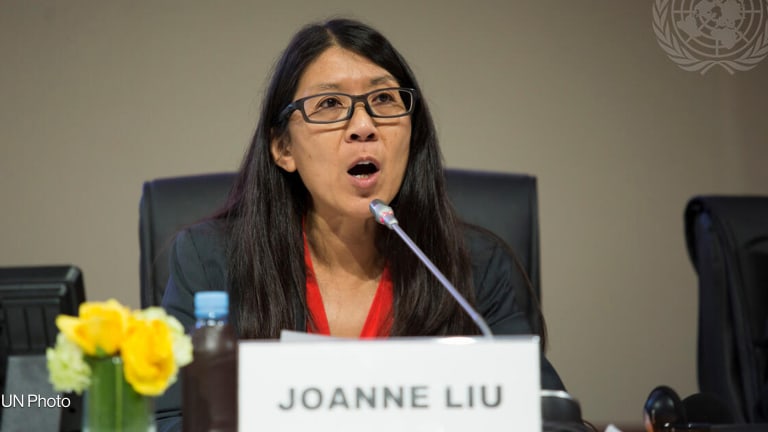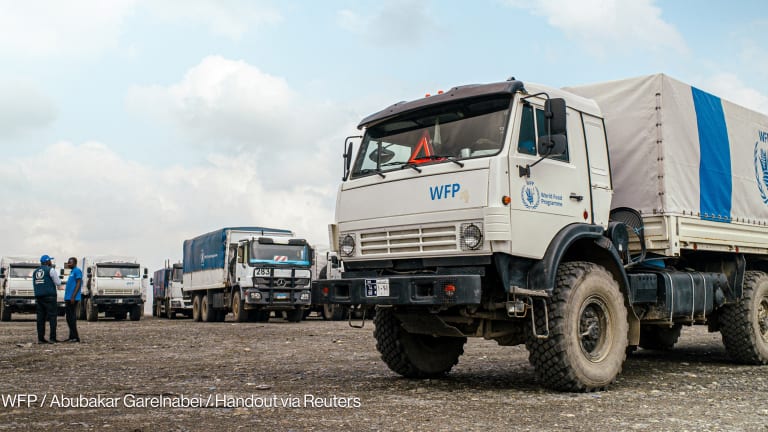
The Ethiopian government lifted its three-month suspension on Médecins Sans Frontières, the organization told Devex. But the government extended its suspension of the Norwegian Refugee Council by two months.
Both organizations were accused of disseminating “misinformation,” allowing foreign nationals to work without the necessary work authorizations, among other accusations at the end of July.
Aid worker killings in Tigray spark calls for safety assurances
Repercussions for humanitarian aid follow the deaths of three Médecins Sans Frontières team members in Ethiopia's Tigray region.
MSF said Ethiopia's Agency for Civil Society Organisations informed it on Oct. 25 that its suspension in the regions of Amhara, Gambella, Somali, and western and northwestern Tigray has been lifted. The organization said it is now “attempting to restart activities in these areas.”
Throughout the year-long conflict in the northern part of the country, the health system has been severely battered from shellings, looting of medicines and equipment, and because medical personnel were forced to flee. An investigation found that only 40 of 224 health facilities in Tigray are functional. Prior to its suspension, MSF was vocal about the deliberate targeting of health facilities in the region.
The organization is a key health care provider across the country. MSF was one of the organizations providing mobile health clinics working to reach people impacted by the fighting. Three of its staff members were murdered in the conflict in June.
Following the suspension, “at short-notice, patients have been discharged from MSF clinics, leaving people in these locations with even further limited access to healthcare,” the organization said in a September statement.
The organization told Devex it couldn’t provide any more information on the lifting of its suspension.
NRC has denied the allegations against it and said it operates legally in the country and with “the best intentions.” Upon extending the suspension, the government asked the organization to address further questions it had about its operations.
“We are deeply disappointed by the Government of Ethiopia’s decision to extend the suspension of our activities in the country by a further two months. We are engaging with the relevant authorities to better understand and respond to this decision as we seek a speedy return to previous levels of collaboration with the Ethiopian government and people,” said Norwegian Refugee Council's Regional Director Nigel Tricks in a statement issued on Oct. 29.
NRC has worked in the Hitsats and Shimelba refugee camps in Tigray that hosted Eritrean refugees, as well as provided education, shelter, sanitation, and food support for people across the country.
NRC had been vocal about the destruction of refugee camps during the conflict as well as advocating for humanitarian actors' safe access to the region.
In September, the organization issued a statement saying that it was worried about the “very serious negative consequences prolonged suspension would have on our staff, our relationship with our partners, and not least, the people in dire need whom we are trying to help.”
Following the suspension of the two organizations, Martin Griffiths, the United Nations’ humanitarian chief, said “Blanket accusations [against] humanitarian aid workers need to stop … They need to be backed up by evidence if there is any and, frankly, it's dangerous.”
The United States’ representative to the United Nations Ambassador Linda Thomas-Greenfield tweeted that the move was “unacceptable.”
The conflict has recently seen an escalation in tensions as the government announced a state of emergency Tuesday, warning residents of Addis Ababa to take up arms if opposition fighters enter the city.








